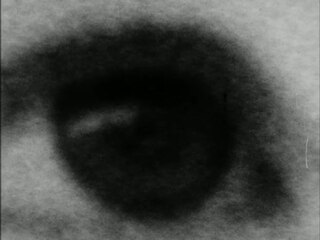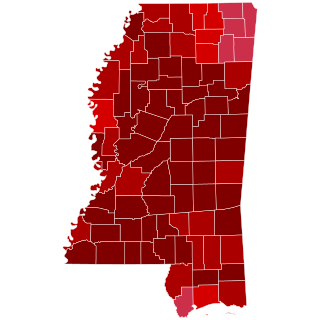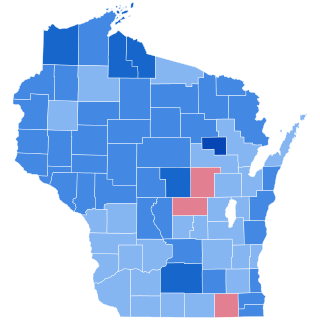The "Confessions of a Republican" advertisement, runtime | |
| Agency | Doyle Dane Bernbach |
|---|---|
| Client | |
| Running time | 4 minutes, 21 seconds |
| Country | United States |
"Confessions of a Republican" is a political advertisement aired on television during the 1964 United States presidential election by incumbent president Lyndon B. Johnson's campaign.
In the advertisement, a man in his late twenties speaks to the camera about his pride in the Republican Party's past, before admitting that he is frightened by Republican nominee Barry Goldwater. He expresses alarm at Goldwater's contradictory, confrontational political views and support from the Ku Klux Klan (the result of his opposition to the Civil Rights Act of 1964) and says that he is afraid of Goldwater's instability and aggressive approach, and fears that it might lead to a nuclear war with the U.S.S.R. He explains that he believes that the party is making a great mistake, and that he will be voting for Johnson in the election.
The four-minute ad was produced by DDB in July 1964. [1] It was a requirement of the casting that actor William Bogert be a Republican. While Bogert was performing a script rather than expressing his own views and is not presented by name, he has described the ad as similar to his own viewpoint and said that he was allowed to improvise somewhat to include his own thoughts on the election. [2]
Though less well-remembered than Johnson's "Daisy" ad (also suggesting that Goldwater might start a nuclear war), it ran in the North and was intended to develop fears about Barry Goldwater and his supporters, such as the then head of the Ku Klux Klan. [3] [2]
The Museum of the Moving Image report on the ad notes that DDB contracted with the Democrats in the summer of 1963, after President John F. Kennedy had been impressed by their quirky advertising for Volkswagen (the Think Small campaign) and for Avis (the We Try Harder campaign). A DDB spokesman reportedly told Johnson's advisers that "We are deadly afraid of Goldwater and feel that the world must be handed a Johnson landslide." [4]
Bogert was interviewed about the ad for its 50th anniversary in 2014, saying that he believed that Tea Party activists had many undesirable attributes in common with Goldwater, and that he had not voted Republican for a long time. [2]
The advertisement was the subject of renewed attention in March 2016 because of Donald Trump's success in Republican primaries. [5] [6] Bogert, by then 80 years of age, was interviewed again on The Rachel Maddow Show on May 2, 2016 and asked to draw comparisons between Goldwater's 1964 policy stances and Donald Trump's 2016 politics. [7] He appeared in a remake of the advertisement produced by the Hillary Clinton campaign in July 2016 with alterations based on Trump's public statements on nuclear warfare. [8]

Barry Morris Goldwater was an American politician and United States Air Force major general who was a five-term U.S. Senator from Arizona and the Republican Party nominee for president of the United States in 1964. Goldwater is the politician most often credited with having sparked the resurgence of the American conservative political movement in the 1960s. Despite his loss of the 1964 U.S. presidential election in a landslide, many political pundits and historians believe he laid the foundation for the conservative revolution to follow, as the grassroots organization and conservative takeover of the Republican Party began a long-term realignment in American politics, which helped to bring about the "Reagan Revolution" of the 1980s. He also had a substantial impact on the American libertarian movement.

The 1964 United States presidential election was the 45th quadrennial presidential election. It was held on Tuesday, November 3, 1964. Incumbent Democratic United States President Lyndon B. Johnson defeated Barry Goldwater, the Republican nominee, in a landslide. With 61.1% of the popular vote, Lyndon B. Johnson won the largest share of the popular vote of any candidate since the largely uncontested 1820 election, in which no candidate of either party has been able to match or surpass.

"Daisy", sometimes referred to as "Daisy Girl" or "Peace, Little Girl", is an American political advertisement that aired on television as part of Lyndon B. Johnson's 1964 presidential campaign. Though aired only once, it is considered one of the most important factors in Johnson's landslide victory over the Republican Party's candidate, Barry Goldwater, and a turning point in political and advertising history. A partnership between the Doyle Dane Bernbach agency and Tony Schwartz, the "Daisy" advertisement was designed to broadcast Johnson's anti-war and anti-nuclear positions. Goldwater was against the Nuclear Test Ban Treaty, and suggested the use of nuclear weapons in the Vietnam War, if necessary. The Johnson campaign used Goldwater's speeches to imply he would wage a nuclear war.
In political campaigns, an attack ad is an advertisement designed to wage a personal attack against an opposing candidate or political party in order to gain support for the attacking candidate and attract voters. Attack ads often form part of negative campaigning or smear campaigns, and in large or well-financed campaigns, may be disseminated via mass media.
"Prouder, Stronger, Better", commonly referred to by the name "Morning in America", is a 1984 political campaign television commercial, known for its opening line, "It's morning again in America." The ad was part of that year's presidential campaign of Republican Party candidate Ronald Reagan. It featured a montage of images of Americans going to work, and a calm, optimistic narration that suggested that the improvements to the U.S. economy since the 1980 election were due to Reagan's policies. It asked voters why they would want to return to the pre-Reagan policies of Democrats.

William Bogert was an American character actor best known for his roles as Brandon Brindle on the TV series Small Wonder from 1985 to 1989, Kent Wallace, the host of Chappelle's Show's Frontline spoofs from 2003 to 2004, and as the titular character of the 1964 "Confessions of a Republican" ad. In 1964 he appeared onstage in the touring production of A Man For All Seasons.
The 1964 presidential campaign of Barry Goldwater began when United States Senator Barry Goldwater of Arizona elected to seek the Republican Party nomination for President of the United States to challenge incumbent Democratic President Lyndon B. Johnson. Early on, before officially announcing his candidacy for the presidency, Goldwater was accused by Governor of New York Nelson Rockefeller of attempting to galvanize Southern and Western Republican support while neglecting the industrial northern states, eventually becoming one of Goldwater's primary opponents in the race for the Republican Party's nomination in 1964.

The 1964 United States presidential election in Alabama was held on November 3, 1964. Alabama voters chose ten representatives, or electors, to the Electoral College, who voted for President and Vice-President. In Alabama, voters voted for electors individually instead of as a slate, as in the other states.

The 2016 United States presidential election was the 58th quadrennial presidential election, held on Tuesday, November 8, 2016. The Republican ticket of businessman Donald Trump and Indiana governor Mike Pence defeated the Democratic ticket of former secretary of state and First Lady of the United States Hillary Clinton and the United States senator from Virginia Tim Kaine, in what was considered a large upset. Trump took office as the 45th president, and Pence as the 48th vice president, on January 20, 2017. It was the fifth and most recent presidential election in which the winning candidate lost the popular vote. It was also the sixth presidential election, and the first since 1944, in which both major party candidates were registered in the same home state.

The 1964 United States presidential election in Georgia took place on November 3, 1964, as part of the 1964 United States presidential election, which was held on that day throughout all 50 states and The District of Columbia. Voters chose 12 representatives, or electors to the Electoral College, who voted for president and vice president.
Eugene Lawrence "Gene" Case was an American advertising executive who developed campaigns for Mennen Skin Bracer and Tums, and developed ads for political campaigns for Lyndon B. Johnson's 1964 presidential election campaign, as well as for Nelson Rockefeller and Robert F. Wagner. Case was a founder of the firm Jordan McGrath Case & Partners.

The 2016 presidential campaign of Gary Johnson, the 29th Governor of New Mexico, was announced on January 6, 2016, for the nomination of the Libertarian Party for President of the United States. He officially won the nomination on May 29, 2016, at the Libertarian National Convention in Orlando, Florida, receiving 56% of the vote on the second ballot. Former Massachusetts Governor William Weld was endorsed by Johnson for the Libertarian vice-presidential nomination, which he also received on May 29, 2016.

The 2016 United States presidential election in Indiana was held on Tuesday, November 8, 2016, as part of the 2016 United States presidential election in which all 50 states plus the District of Columbia participated. Indiana voters chose electors to represent them in the Electoral College via a popular vote, pitting the Republican Party's nominee, businessman Donald Trump, and running mate Indiana Governor Mike Pence against Democratic Party nominee, former Secretary of State Hillary Clinton, and her running mate Virginia Senator Tim Kaine. Indiana has 11 electoral votes in the Electoral College.
Social media played an important role in shaping the course of events leading up to, during, and after the 2016 United States presidential election. It enabled people to have a greater interaction with the political climate, controversies, and news surrounding the candidates. Unlike traditional news platforms, such as newspapers, radio, and magazines, social media gave people the ability to comment below a candidate's advertisement, news surrounding the candidates, or articles regarding the policy of the candidates. It also allowed people to formulate their own opinions on public forums and sites and allowed for greater interaction among voters. The accessibility of information online enabled more voters to educate themselves on candidates' positions on issues, which in turn enabled them to form unique opinions on candidates and vote on those opinions, ultimately impacting the election's outcome.

The 1964 United States presidential election in Mississippi was held on November 3, 1964, as part of the 1964 United States presidential election, which was held on that day throughout all fifty states and the District of Columbia. Voters chose seven electors, or representatives to the Electoral College, who voted for president and vice president.

The 1964 United States presidential election in Wisconsin was held on November 3, 1964 as part of 1964 United States presidential election. State voters chose 12 electors to the Electoral College, who voted for president and vice president.

Monique M. Luiz, also known as "Daisy Girl" or "Peace, Little Girl", is an American former child model best known for appearing in the "Daisy" advertisement, part of then incumbent president Lyndon B. Johnson's 1964 presidential campaign.

Donald Trump, the President of the United States from 2017 to 2021, was the subject of segments featured in episodes of Last Week Tonight with John Oliver during Trump's Republican primary and general election campaigns and presidency, most of which were discussed in the show's opening news recap segment. The ones listed have received prominent coverage from other media, and feature Trump or his actions as part of the main segment.
Republican Accountability (RA), formerly Republican Accountability Project (RAP) and Republican Voters Against Trump (RVAT), is a political initiative launched in May 2020 by Defending Democracy Together for the 2020 U.S. presidential election cycle. The project was formed to produce a US$10 million advertising campaign focused on 100 testimonials by Republicans, conservatives, moderates, right-leaning independent voters, and former Trump voters explaining why they would not vote for Donald Trump in 2020. By August 2020, they had collected 500 testimonials.
The 1964 presidential campaign of Lyndon B. Johnson was a successful campaign for Johnson and his running mate Hubert Humphrey for their election as president and vice president of the United States. They defeated Republican presidential nominee Barry Goldwater and vice presidential nominee William Miller. Johnson, a Democrat and former vice president under John F. Kennedy was inaugurated as president upon Kennedy's assassination. In 1964, Johnson did not look optimistically upon the prospect of being elected president in his own right. Despite Johnson's uncertainty about running, he was seen as the most likely candidate to get the nomination. He entered the primaries starting with New Hampshire and won the state by almost 29,000 votes. Johnson's main opponent in the primaries was Alabama Governor George Wallace, who had announced his intention to seek the presidency even before Kennedy's assassination.